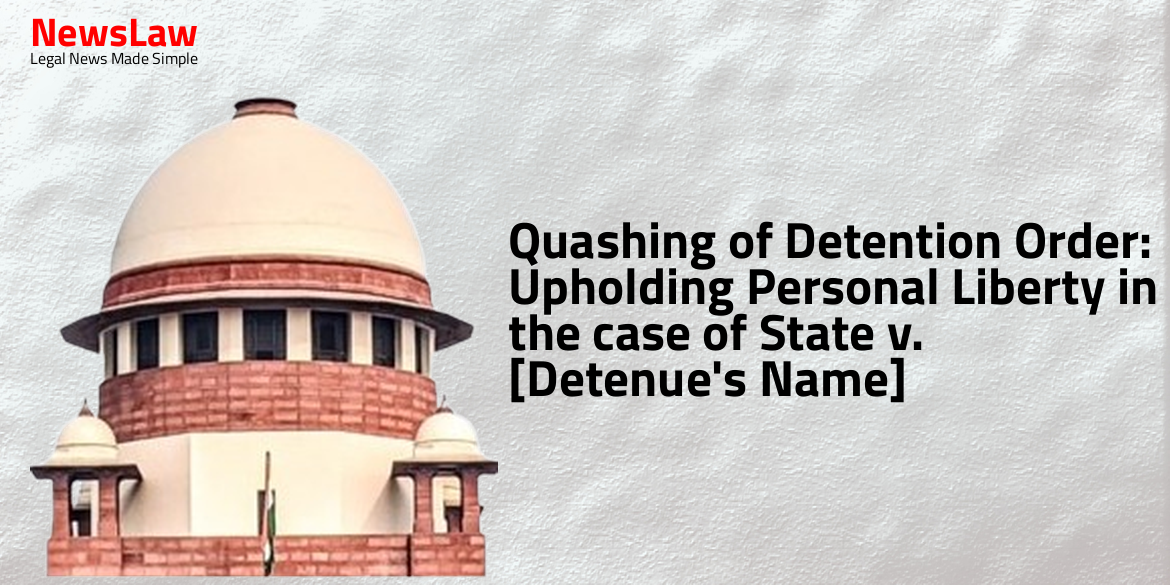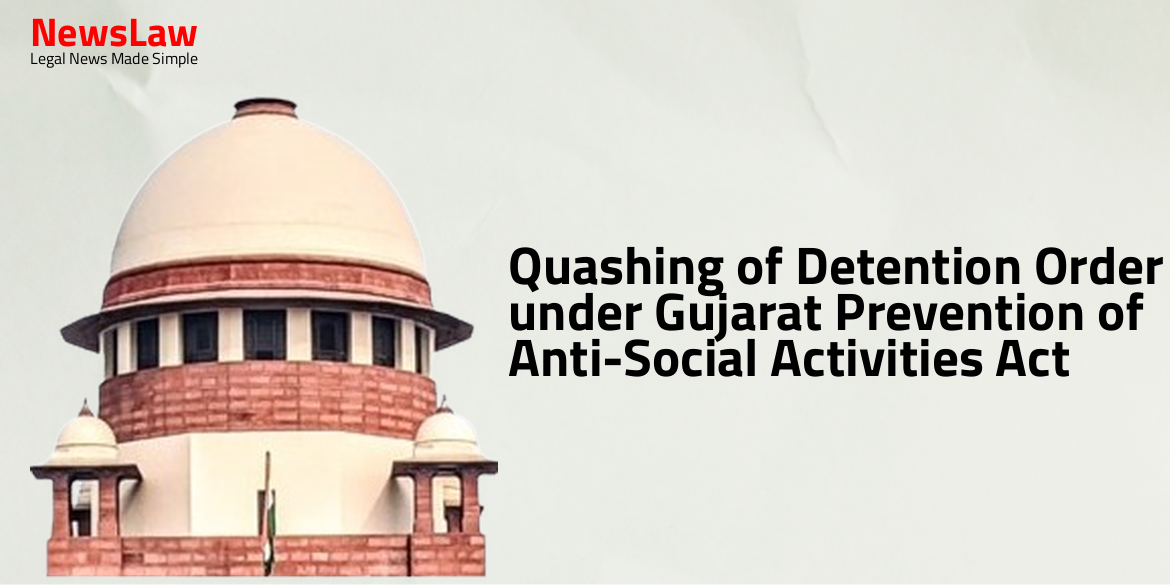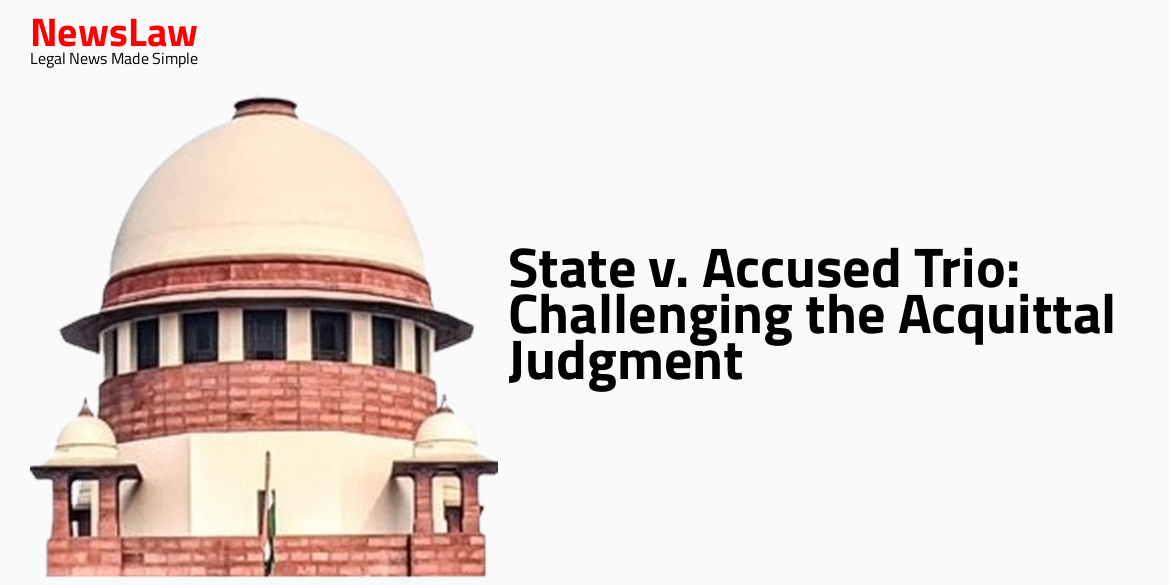In a significant ruling, the Gujarat High Court has emphasized the protection of personal liberty in the case of State v. [Detenue’s Name]. The court’s decision to quash the detention order underscores the importance of adhering to legal procedures and upholding constitutional safeguards. Let’s delve into the details of this crucial judgment that underscores the limits of preventive detention and the significance of distinguishing between ‘law and order’ and ‘public order’.
Arguments
- The detaining authority passed the order of detention based on sufficient materials and evidences found during the investigation.
- The detaining authority believed the detenue is habitually engaging in activities defined under Section 2(c) of the Act.
- The detaining authority’s subjective satisfaction is found to be questionable as the alleged offenses in the FIRs do not pertain to public order but are covered under other penal laws.
- The allegations against the detenue are not sufficient to bring them under the definition of Section 2(c) of the Act.
- For a person to be detained under the Act, they must pose a threat and menace to society that disturbs the overall social order.
- In this case, the allegations do not demonstrate that the detenue poses such a threat to public order.
Analysis
- Article 21’s protection of personal liberty is of utmost importance and any detention must adhere to established legal procedures.
- Registration of FIRs alone does not justify invoking power under Section 3(1) of the Act for detaining an individual.
- In absence of relevant material connecting the petitioner to breach of public order, the detention order is quashed.
- Detenue to be released immediately unless needed in another case.
- The order lacks reference to any application for bail cancellation by the State authorities.
- The powers of preventive detention are considered exceptional and draconian.
- For an act to affect public order, it must impact the community or the public at large, not just specific individuals.
- The distinction between ‘law and order’ and ‘public order’ has been clearly defined by the Constitution Bench.
- Several detention orders in Telangana have been quashed in recent years due to incorrect application of public order standards.
- Preventive detention should not be used as a substitute for ordinary criminal law.
- Every disturbance does not necessarily lead to public disorder; it must affect the community at large.
- The State’s power to curb rights under criminal laws and preventive detention should be exercised cautiously and based on proper facts and circumstances.
- Personal liberty cannot be sacrificed merely based on a person being implicated in a criminal proceeding.
- The colonial-era distinction between ‘law and order’ and ‘public order’ continues with constitutional safeguards against abuse.
- Acts of assault or injury to specific persons do not necessarily lead to public disorder and should be dealt with under ordinary criminal law.
- Authorities passing detention orders must be mindful of the constitutional provisions of Articles 21 and 22, ensuring fairness and legality.
Case Title: MOHSINKHAN @ TARZAN RAJJAKKHAN PATHAN Vs. STATE OF GUJARAT
Case Number: R/SCA/7836/2024



